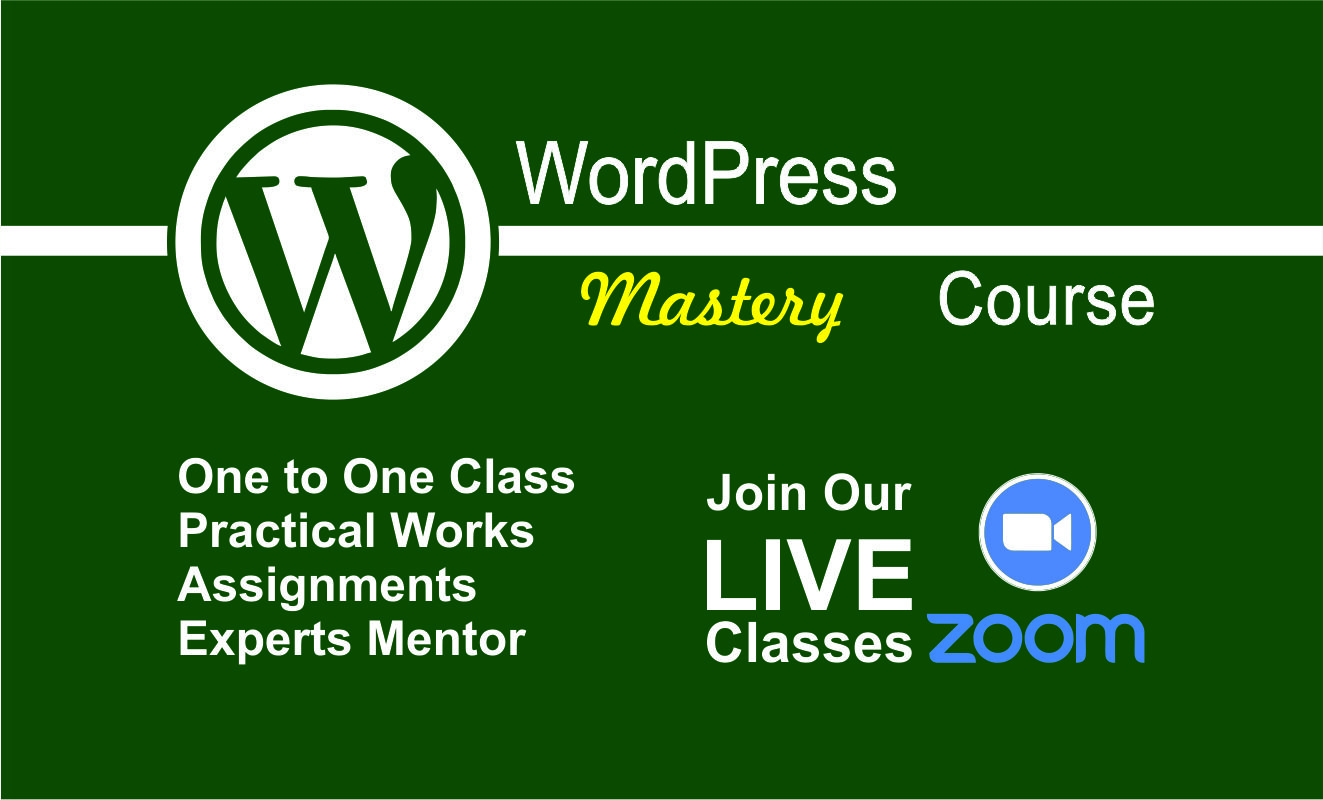The WordPress Website Development course is designed to provide participants with the knowledge and skills needed to create, customize, and manage dynamic websites using the WordPress content management system. Whether you're a beginner or have some web development experience, this course covers everything from setting up a WordPress site to designing and maintaining feature-rich websites for various purposes.
Course Outline:
Module 1: Introduction to WordPress
- Understanding the role of WordPress in web development
- WordPress history and popularity
- WordPress.org vs. WordPress.com
- Setting up a local development environment
Module 2: Getting Started with WordPress
- Installing and configuring WordPress
- The WordPress dashboard and user roles
- Basic settings and general configurations
- Updating WordPress and plugins
Module 3: Creating and Managing Content
- Creating and formatting blog posts
- Creating and editing pages
- Managing media (images, videos, audio)
- Working with the WordPress editor (Gutenberg)
Module 4: Customizing Website Appearance
- Selecting and installing themes
- Customizing themes with the WordPress Customizer
- Creating and customizing menus
- Working with widgets and sidebars
Module 5: Plugins and Functionality
- Introduction to WordPress plugins
- Installing and activating plugins
- Essential plugins for different website types
- Custom plugin development (optional)
Module 6: Search Engine Optimization (SEO)
- SEO fundamentals for WordPress
- Yoast SEO and other SEO plugins
- Optimizing content for search engines
- SEO best practices
Module 7: E-Commerce with WooCommerce (Optional)
- Setting up an online store with WooCommerce
- Adding and managing products
- Payment gateways and shipping options
- E-commerce best practices
Module 8: WordPress Security
- WordPress security threats and vulnerabilities
- Security plugins and best practices
- User access and authentication
- Regular backups and disaster recovery
Module 9: Performance Optimization
- Improving website speed and performance
- Caching and optimization plugins
- Content delivery networks (CDNs)
- Image optimization techniques
Module 10: Website Analytics
- Introduction to Google Analytics
- Integrating Google Analytics with WordPress
- Tracking website performance and user behavior
- Using analytics data for insights
Module 11: Website Backup and Maintenance
- Scheduled backups and automated backups
- Manual backups and restore procedures
- Website maintenance best practices
- Troubleshooting common issues
Module 12: Website Monetization (Optional)
- Monetization strategies (ads, affiliate marketing, membership sites)
- Integrating advertising networks
- Managing revenue streams
Module 13: Multilingual Websites (Optional)
- Creating multilingual websites with plugins
- Translating content and managing translations
- Language-specific SEO considerations
- Localization and internationalization
Module 14: Advanced WordPress Topics (Optional)
- Custom post types and taxonomies
- Custom fields and meta boxes
- Child themes and template hierarchy
- WordPress REST API (for headless WordPress)
Module 15: Capstone Project
- Applying knowledge to create a complete WordPress website
- Project presentation and peer review
- Graduation and certification
Course Duration: The course can be delivered over 10 to 14 weeks, with each module typically lasting one week. The duration can be adjusted based on the depth of coverage and participants' prior experience.
Assessment: Participants will be evaluated through assignments, quizzes, a final project, and participation. Successful completion of the course will lead to a WordPress Website Development certificate.
Prerequisites: Basic computer skills and internet usage knowledge are recommended, but no specific prerequisites are required.
Target Audience: This course is suitable for individuals interested in building and managing websites using WordPress, including bloggers, small business owners, aspiring web developers, and content creators.

